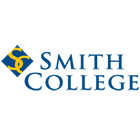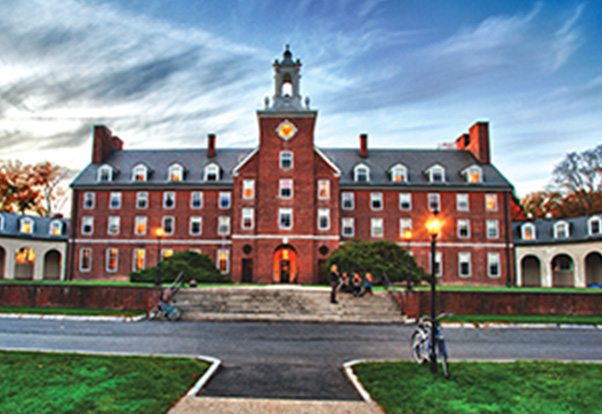

Rhodes Scholar
Clarke Knight ’14, a chemistry major from Henderson, Nev., has been named one of the 32 recipients of the 2014 Rhodes Scholarships representing the United States. Knight is the first Rhodes Scholar from the U.S. in Smith College’s history.
Clarke’s interests, which she will pursue through a M.Phil. in geography and environment at the University of Oxford, focus on science-based environmental policy. In her application to the Rhodes Trust, Clarke points to her research in the Australian state of Tasmania as the “epiphany” that connected science and society. Supported by a grant at the University of Tasmania, Clarke worked with a plant pathologist to investigate two diseases that had a significant impact on the global potato crop. Her team was able to discover and market a new chemical that neutralized the disease, resulting in an estimated global increase of one billion potatoes annually.
The following summer, Clarke was awarded a fellowship at the Centers for Disease Control and Prevention (CDC) to study the stability of of biological samples from people exposed to mercury. Her study, which successfully found an optimal method of sample preservation, resulted in a change of collection and storage procedures at the CDC.
Clarke is also the author of Footnotes in Architecture, a book that resulted from a scholarship awarded to conduct research on the history of women architects. The success of her first book has led her to compile the biographies of Smith College chemistry graduates, a project that she says “fills the gap in the early history of American women chemists.” The compilation, which earned Clarke the Emerson National scholarship from Iota Sigma Pi, a society of women chemists, will be published online as a research tool.
At Smith, Clarke is a member of the varsity crew and cross-country teams. She is the third Smith College student or alumna to receive a Rhodes Scholarship, but is the first U.S. recipient to have applied and been awarded the Rhodes through Smith College. The two previous recipients are Tariro Makadzange ’97 of Zimbabwe and Angela Lwiindi Leila Hassan ’94 of Zambia.
The Rhodes Scholarship provides the expenses for two or three years of study at the University of Oxford in England. Established in 1902 by the will of British philanthropist Cecil Rhodes, the Rhodes Scholarships are considered one of the most competitive and “best known awards for international study, and arguably the most famous academic award available to American college graduates” according to Elliot Gerson, the American Secretary of the Rhodes Trust.
Smith College
Founded in 1871, Smith College opened in 1875 with 14 students. Today, it is one of the largest women’s liberal arts colleges in the United States, educating women of promise for lives of distinction and purpose. Located in Northampton, Massachusetts, Smith enrolls 2,600 students from nearly every state and more than 50 other countries, providing opportunities for students to develop their passions and talents to effect meaningful change throughout the world.
Smith has changed much since its founding, but throughout its history there have been certain enduring constants: a dedication to providing both the educational offerings and practical experiences that enable students to make a difference in the world, a belief in the ability of education to address the world’s most pressing problems, and a concern for the rights and privileges of women.
Today the college continues to benefit from a dynamic relationship between innovation and tradition. And while Smith’s basic curriculum of the humanities, arts and sciences still flourishes, the college continues to respond to new and evolving disciplines—offering majors or interdepartmental programs in engineering, the study of women and gender, neuroscience, film and media studies, Middle East studies, statistical and data sciences and other emerging fields. Our students leave Smith to work as policy-makers, researchers, artists, engineers, writers, business leaders and scientists who push the world forward.


